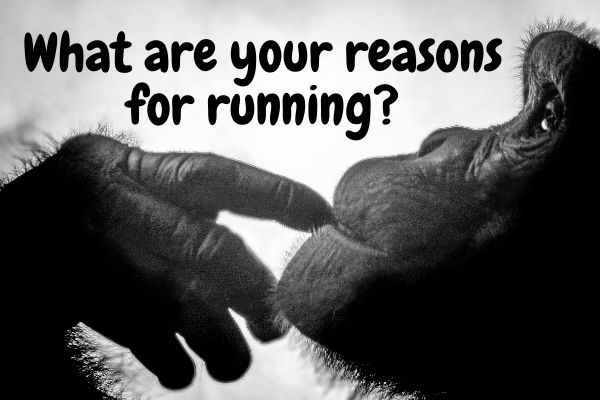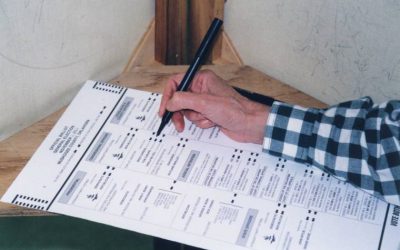Facebook Political Ad Authorization – What You Need To Know
A number of clients and outside candidates have reached out to us because they’ve had problems getting authorized to run political ads on Facebook.
If you don’t know already, Facebook requires verification from you or a member of your campaign if you want to run political advertising through the platform. The verification process was put in place to stop the spread of misinformation on the social network. It was also in response to the Cambridge Analytica scandal, where the company harvested the profiles of 50 million Facebook users without their consent to build voter-targeting models.
Facebook is not just a social media platform; it is also an advertising platform. Being authorized means that other people will be able to see your ads and your ad budget for this account.
Even if you are just running a page for your political campaign and do not plan on running any promotions, it’s a good idea to verify yourself and become authorized.

In 2018, Facebook launched an authorization process for political advertisers to run “electoral or issue-based” ads.
What constitutes political advertising on Facebook?
Political advertising includes ads about social issues, elections or politics. Advertising includes targeted image or video ads, Facebook Live event promotions – or even just boosting a post that contains political content.
The criteria for political advertisers include ads that are:
- Made by, on behalf of, or about a candidate for public office, a political figure, a political party or advocates for the outcome of a public election
- About any election, referendum, or ballot initiative. This includes “go out and vote” ads
- About social issues in the location where ad is being placed
- Regulated as political advertising
Social issues is a pretty broad term. Facebook lists the topics that count for advertising purposes. In the United States, they include:
-
civil and social rights
-
crime
-
economy
-
education
-
environmental politics
-
guns
-
health
-
immigration
-
political values and governance
-
security and foreign policy
Facebook verification for political ads begin in May of 2018. It required a label on political advertisements to let users know that an ad contains political content.
If you are going to run an ad on Facebook that focuses on any topics on this list, it must also contain a disclaimer.
All political ad disclaimers must:
- Accurately represent who is responsible for the ad and include accurate, valid information.
- Not include profanity, objectionable language or unrecognizable words or phrases.
- Not include URLS or acronyms, unless URLs or acronyms make up the name of the organization.
- Not imply that your ads are associated with Facebook.
- Not imply that a foreign leader paid for the ad.
- Not include duplicate “Paid for” language that is the same as provided by Facebook.
Facebook must approve your disclosure against their own advertising policies before your ad can run.
If an ad runs without a proper disclaimer, it will be paused, disapproved and added to the Ad Library, until the advertiser completes the authorization process and is approved.
Starting the Facebook ad authorization process
Make sure you have the following information ready before you begin. This will save you a lot of time and frustration as you confirm your identity.
- You must be the Page administrator or advertiser on the Page from which you’re running ads about social issues, elections or politics.
- A US passport, driver’s license or ID card.
- A US-based residential mailing address.
We’ve found this Facebook Help article to be helpful for those who want to start the verification process.

Ads on Facebook, Google and other ad networks today require a ‘paid for’ disclaimer.
The Facebook political ads verification process:
- First, you’ll need to set up two-factor authentication. This is a security feature that helps protect your account from hacks.
- Provide a copy of at least one US-based, government-issued ID. This can be a driver’s license or passport. Make sure the image is clear and readable.
- Provide the last four digits of your SSN.
- Provide your mailing address. This is where Facebook will send the verification code.
- Once you request a verification card, it will take (roughly) a few weeks until receive a card in the mail. This will contain a code for you to enter to confirm your identity.
- Enter the card code provided to confirm your address verification (you can do so by returning to facebook.com/id/us_political_ads_advertiser/
The steps of this process are similar if you want to verify a location for a listing or business page.
- You will need to provide details regarding the funding of the political advertising. You’ll have to disclose whether the funds paying for the ad come from a political party or if they are self-funded.
- Once your identity and information is verified and you have been allowed to run political ads, you will need to link your ad accounts in Business Manager to set up your “paid for by…” disclaimers.
- After submitting your disclaimers and linking that will be allowed to post ads, you will not be able to place new ads from the ad account until your disclaimer has been approved. This process can take a day or so.
- Once approved, you’ll see a new option appear in the ad creation process. If your ads include political content, you’ll need to check the box to add a “paid for” disclaimer.
How long does it take your account verified and approved?
According to Facebook, if you follow these steps properly, you should expect to receive your verification card in 7–10 days. We have had clients that received their cards within that time. Others did not get their cards for a few weeks. And we also heard from several angry candidates that they never received anything at all!
Do NOT try to run political ads before you are authorized
Most ad rejections seem to be automated. If your campaign page has already been determined to be political in nature, any campaign advertisements run through that page will be automatically flagged for review.
If you want to run election ads through Facebook, you need to be authorized and FIRST.
If you repeatedly try to push ads through before you are properly verified, it’s possible you may have your ability to run ads permanently disabled. We don’t know this for a fact, but feedback from some of our clients suggests this might be happening. So, be careful.
Banned election advertising?
Both Facebook and Google instituted issue-advocacy and political ad bans in the weeks leading up to the US 2020 general election. This was done in an effort to curb misinformation on behalf of politicians and special interest groups. While Google soon lifted its ban after the November election, Facebook prohibited political ads on its social network indefinitely.
Facebook eventually lifted its self-imposed prohibition in March, 2021. Could this political advertising ban happen again? It’s certainly possible, and campaigns should prepare for that eventuality.
Unfortunately, we CANNOT help with Facebook ad authorization. We wish we could. As it is, we have no special tricks or connections to help with what can be a very frustrating process…
Good luck!

Related:
- Facebook for Political Campaigns
- Using Facebook Live for Your Political Campaign
- Why Running Your Campaign From Just Your Facebook Page Is A Bad Idea
This post was updated on January, 2022
Every Vote Counts – Video
Getting the most votes on Election Day is the most important part of the campaign process. Your GOTV efforts are all about supporter turnout.
So why do so many eligible voters forget to vote on Election Day? The video below shows a variety of reasons, from being too busy to just forgetting to vote. It also provides viewers with tips and resources to help ensure that their vote is counted.

Feel free to share this video with your supporters and embed it to your campaign website.
Related: 4 Political Campaign Video Ideas
So You Want To Run For Mayor? Here’s How To Get Started
Most people associate a mayoral position with a large city. However, the position of mayor as the head of a municipality extends to small towns and villages.
The majority of mayors and the city council, village, or town council are directly elected by the voters. This means you’ll need to run a more traditional political campaign.
Let’s start with the basics.
- What type of government does your city / town / village fall under?
- Why do you want to become mayor?
- Check your eligibility to be on the ballot
- Can you keep your existing elected position?
- How much money will you need raise for your mayoral race?
- Increase your local popularity
- Build your endorsements
- Expand your social network
- Attend events and government meetings
- Create a campaign committee
- File your documents
If you want to run for mayor, there are a number of factors that you need to take into consideration. You should be aware of the eligibility requirements, the most pressing issues that are affecting the city, and how to go about raising funds for your campaign. Also essential will be identifying an effective campaign team to help plan and execute a successful campaign strategy.
What type of government does your city / town / village fall under?
Your local government will not only determine the eligibility requirements, but also the duties and responsibilities of mayor.
Did you know there are two types of mayors? They can ‘weak’ or ‘strong’.
A “Strong Mayor” is elected directly by voters. Under this form of local government, the mayor serves as Chief Executive to administer government duties. These duties include the power to: propose annual budgets; draft and implement administrative rules; and appoint and remove department leadership.
These types of mayors typically serve in a “mayor-council” system of government. This consists of an executive branch (Mayor) and legislative branch (City Council). Some mayors have veto power over council legislation, while others do not.
A “Weak Mayor” may also be referred to as “council-manager”. Under this type of government, the elected council ( often a “City Commission” or “Board of Aldermen”) makes policy and sets the local budget. The mayor is a full voting member but has little or no executive power. In these cases, the mayor is simply appointed by the council, or it is a ceremonial role that may be rotated between council members.
To administer city policies and programs, a professional City Manager who is responsible for managing city employees and overseeing the day-to-day operations of the government.
“When the burdens of the presidency seem unusually heavy, I always remind myself it could be worse. I could be a mayor.” – Lyndon B. Johnson
Either way, becoming elected is not easy. You must adhere to the requirements of a candidate and abide by state and local campaign laws and regulations.
These regulations include:
- How you can run for office.
- How and when you can raise money.
- How campaign contributions can be spent.
- Messaging requirements
- Everything in between.
Finally, becoming elected mayor requires convincing the majority of residents to vote for you.
This process can be overwhelming if this is your first election, but you will find the process easier by starting with the basics.
Why do you want to run for mayor?
Before you start a campaign for mayor, you should have clear goals in mind. What are some of the challenges facing the residents in your town or city? What policies would you enact to help them deal with those issues? What makes you a better choice than your political opponents?
The National League of Cities releases an annual State of the Cities report. In it, the NLC examined 100 State of the City speeches from large and small cities across the United States.
According to the report, these are the top issues that matter to cities:
- Economic Development
- Public Safety
- Budgets
- Infrastructure
- Education
- Housing
- Energy/Environment
- Demographics, Diversity, and Inclusiveness
- Technology and Data
- Health Care
There is a good chance that one or more of these issues can become the basis of your candidacy. Learn the local issues and how they effect taxpayers and residents. Find out what solutions are being proposed and think about your stand on those positions.
Did you know? There are aver 1,400 mayors responsible for representing cities with populations over 30,000 across the United States.

Your objectives will affect the messaging and theme of your campaign. You will need to understand both the issues, your districts, and your voters to develop a campaign platform. Analyze the attitude of the locals towards the current elected officials.
Analyze the demographics of the area, including the number of voters, age ranges, household income and more. What are the dominant constituent groups in the city? What are their needs and demands?
Research previous campaigns. How did those candidates conduct their campaigns? What issues did they run on? What success have they achieved?
With this information, you can start to design a robust campaign strategy.
Check your eligibility to be on the ballot
The eligibility for a mayor position varies based on the town you intend to run. Before you begin your campaign, you should be familiar with the eligibility requirements.
Below are some of the common requirements for mayoral candidates:
Age requirements
Generally, to become mayor of a large US city, a person needs to be at least 18 years of age. Other places have their own specific age requirements. For example, Hialeah, FL requires a candidate to be at least 19 years old, be a registered voter and a local resident for at least one year.
You must be at least 21 to run for mayor in Louisville (KY), Aurora (CO) and Oklahoma City. Cities like Colorado Springs, Washington, Glendale and Kansas City requires you to be 25 years. Denver (CO), Nashville (TN) and Memphis (TN) requires candidates to be at least 30 years of age.
A few cities don’t have a minimum age at all. They include Baton Rouge, LA, Pittsburgh PA; Minneapolis MN; and Jersey City, NJ.
Educational requirements
Most cities require you to have at least a high school diploma to be mayor, while others need a bachelor’s degree.
Residency requirements
Most cities require that candidates should be residents of the city or town for at least one year before they apply for the position. Also, if the candidate wins the election, he/she should live in the city until the end of their tenure as mayor.
If you don’t think you qualify to be mayor, perhaps running for city council would be a better move. That could give you additional experience an connections.
Where to get help on starting your campaign
Your county elections board or city clerk can provide the requirements and rules for your election before you run.
As with anything else government related, paperwork is everything. You will need to get and fill out all the relevant registration forms and documentation. You must provide details such as your name, age, education experience, residence, and your financial interests.
You will have deadlines for submitting the documents. Some documents may have filing fees.
Know your deadlines. Don’t miss them.
Can you keep your existing elected position?
Some cities require the candidates to resign from their existing elected position while serving as mayor. This is called “resign to law”. Five states currently have resign-to-run laws—Arizona, Florida, Georgia, Hawaii, and Texas. If you fall under this law, you will need to leave your current job before you can run for another office.
“What matters is voting for where you live: Who’s your mayor, who’s your police chief, who represents you, your city council, your judges. That matters that you vote.” – Joe Walsh

How much money will you need raise for your mayoral race?
Election costs vary from location to location and from position to position. A village mayor candidate may hardly need to raise money at all and do little more than door-to-door canvassing.
However, a large city campaign will require considerably more resources and networks to establish itself.
- Before you plan for fundraising, you should calculate the amount needed for your election. Election costs are higher than ever before. The amount varies based on the size of the city and competitiveness of the seat. The state board elections have financial campaign disclosures, but it’s also wise to check the FEC records for estimations if you live in a large city.
- Many factors can affect the costs of a campaign. For example, if you are running against an entrenched incumbent, then you will likely need a bigger budget. Research the amount raised and spent from other mayoral candidates from the last few campaigns. Figure that you will need to raise and spend within that range.
After you evaluate the past elections, you will identify the spending trends that will help you develop a practical budget for your own campaign.
Early donors who believe in your cause will be some of your most important backers. Online fundraising is one of the most effective ways to find money when starting out. You should have a mayor campaign website as early as you can to accept donations from online donors.
To start fundraising, you won’t need much. Once you have a bank account and website, you’ll need a payment processor for your online transactions. A good online donation page contains the logo and colors of your campaign. A short introductory candidate video is also a good addition.
Related: Start your mayor campaign website – affordable package pricing and resources.
Increase your local popularity
Good messaging bonds you with voters. But to really build a following, don’t underestimate the power of raw popularity.
Many voters will vote for a popular individual for any political seat. We often see this in governor elections, where celebrities with no political experience sweep into office.
So, how do you increase your popularity?
It can be tough, especially if you are not extremely outgoing.
- Familiarize yourself with what is happening locally through community events, charity events and more.
- Engage yourself in development initiatives and become a regular visitor at council meetings. It is there that you can display leadership in the issues that are important to you. Others who attend those functions will get more acquainted with you and identify you as a potential leader.
- Try to meet with community influencers and other essential people outside of scheduled government meetings.
- If you get the support of elected officials and community leaders, that will eventually give you the connections and endorsements needed to boost your candidacy.
Make sure you start your outreach process before you declare your intention to run for any political seat. Once it’s known that you are vying for an elected position, many will treat you differently.
Later, once you get your campaign off the ground, you can erect billboards, door signs and brochures to make yourself more visible to the public. Door to door canvassing across different neighborhoods will also enable you to establish a deeper connection with the voters and get better support. Online campaigning will help you reach new voters and keep in contact with existing supporters.
“Mayors are leaders, doers. We get things done, and we are moving America’s cities forward.” – Michael Nutter
Build your endorsements
Getting endorsed by politicians, political parties and other authorities can help establish trust with a good segment of the electorate. Organizations don’t seek candidates to endorse, so you should be proactive when looking for endorsements. This is especially important for first-timers.
Most organizations require candidates to follow a certain process to secure their endorsement. Typically, you will need to fill a questionnaire and outline your policies that will bring that will benefit the organization or their objectives. And if you need endorsements from individuals, then a letter with a similar outline will be beneficial.

Some ways to raise awareness in your region are to have local, well-known citizens write letters in the local newspapers or ask for endorsements from editorial boards.
It helps to be endorsed from other politicians, political parties, influential locals, local unions and community leaders. These are essential to your campaign as they raise your profile while making you more visible to the voting public.
Good endorsements can also boost your fundraising and volunteer organizational abilities.
Expand your social network
As a politician, you need to be active on social media. If you are not talking about yourself and managing your own online conversation, then others will speak for you.
And that will probably be your opponents!
Learn how social media works yourself. Eventually, your campaign team will help put together a social media strategy. Work on promoting good messaging and content. While you may do most of this yourself before you announce your candidacy, eventually you may want to have a social media manager handle this aspect of the campaign.
Running for office? Get free tips for starting and running our digital campaign. Sign up here.
Attend events and government meetings
As an aspiring politician, it is crucial to participate in events and government meetings. They offer a platform to air your views on local issues and get recognized as a leader with genuine concerns for the people.
As noted above, being present in public meetings you will provide opportunities for meeting local representatives and developing a network that will be vital before and after your campaign.
Building contacts now will be essential to your political career.
Meet community members
Every day, you should have a goal of meeting at least one influential people in the community. These are individuals who understand the local community. They can help with your messaging and especially in convincing voters in their districts.
Relationships are the ingredients to success in almost every industry and profession. A larger network means a higher potential for success. Therefore, you should dedicate time for networking activity.
Create a campaign committee
Before you run, you will need to establish a campaign committee, designate a campaign treasurer, and have a campaign bank account.
These requirements are typical for every political campaign. A treasurer must be appointed before the making of expenditures or accepting of any funds towards the campaign. A candidate can act as their own committee treasurer though this is not recommended.
The treasurer is responsible for:
- Signing and filing of committee reports and statements
- Budgeting for expenditures
- Ensuring the campaign contributions fall within legal limits
- Authorization of expenditures
This position is sensitive and comes with significant responsibilities, and so you must have a trusted individual for the job. The treasurer should develop a campaign budget that includes sources of money and expenditures for the entire campaign period.
Other important members of your campaign team are:
- Chairperson
- Communications director
- Campaign manager
Most cities require you to establish a committee before you declare candidacy. Once established, your team will also help in day to day running of the campaign.
File your documents
Many cities require mayor candidates to get a certain number of signatures for an election petition for them to qualify to run for the seat. So, you will need to collect signatures if you want to be on the ballot.
The exact number of signatures will vary based on the size of the town or city and the number of residents. These forms are available at your local clerk’s office and specifies the number of signatures needed and the deadline of collection. If you are running for mayor in a large city, then you may need a team of canvassers and volunteers who will help you to get the signatures.
Once your petition has collected the required number of signatures, the next task is the candidate’s affidavit and fulfilling any other election requirements.
If all goes well, you will be on the ballot!
And that’s just the start of your election season. As you ramp up your campaign, building an excited base is important. You will need those people to show up on Election Day.
“Winning the election is a good-news, bad-news kind of thing. Okay, now you’re the mayor. The bad news is, now you’re the mayor.” – Clint Eastwood

Turnout is crucial in mayoral elections, as in 15 of the 30 most populous cities in the U.S., voter turnout is less than 20 percent.
Now that you have an idea of how to become a mayor, now is the time to get started!
Featuring an affordable political website builder, tools and marketing services, start your campaign with Online Candidate.
Preparing Your Campaign For Early Voting
In recent years, many states have made changes for people to vote early or by mail. With all these changes, it’s important for political campaigns and candidates to educate their supporters on how and when they can vote.
For example, one cannot vote unless they are registered. You’ll want to encourage eligible voters to verify their registration status. Early voting is an option for people concerned about mail delays or the safety of in-person voting. Of course, rules differ between states. Some states have identification requirements that may require a photo or non-photo ID to vote. Hours and poll locations may have changed this year – or may change between now and Election Day.
If you find all this confusing, imagine how some voters must feel!
Deadlines are critical for making sure each vote is counted. You and your supporters need to know the following deadlines, including:
- Early Voting Dates
- Deadline to Request an Absentee Ballot
- Deadline to Return Completed Absentee Ballot
- Early Voting Deadlines
- Election Day voting locations and times
Even simple things, like a missing signature, can invalidate a ballot. Keeping your supporters up to date on voting information is more important than ever. Getting your message out by useful educating can help replace a lack of door-to-door canvassing and in-person events. Turnout is often the deciding factor in an election. Communicate through all your online and offline channels, including email, social media, and targeted advertising.
There are organizations that are dedicated to sharing voting information. Some provide widgets that you can embed in your campaign website to check voter registration, verify registration status, perform absentee ballot registration, reminders and more.
Civic engagement tools and resources:
Many organizations (partisan and non-partisan) are committed to registering and turning out new voters. Consider partnering up with one or more to help spread the word.
Related:
Online Candidate provides political campaign website packages, political marketing services and a selection of items in our Download Store.
5 Political Campaign Video Ideas
Online video was once an expensive luxury reserved only for well-funded political campaigns and viewers with a good internet connection. Today, video is everywhere. You can shoot video (and even edit it) from just about any mobile phone and easily share clips to social media.
Video is an effective visual marketing tool for political campaigns of all sizes. As of 2020, there were an estimated 232 million video users in the United States. So a good video holds great potential for engagement and shares from voters and supporters.
For most campaigns, video clips are uploaded to YouTube and uploaded directly to campaign social media accounts, like Facebook, Twitter and Instagram. Video content can be easily embedded into a campaign website or blog. Organizations with larger budgets may use paid video hosting services to avoid advertising and branding from appearing with their clips.
Whether you plan to create professionally edited videos or quick clips recorded from a mobile phone, you may be struggling for content ideas that appeal to voters.
Here are a few suggestions on how to use video for your political campaign:
Create a personal introduction to voters
A personal introduction on a campaign website home page is a great way for voters to see and hear the candidate. A short, personal message about the candidate or why he or she is running can help give depth and personality to the site.

Let Us Create Your Candidate Intro Video!
Kick off your YouTube channel and with an intro video branded with your campaign and messaging.
Repurpose your campaign commercials
Your television (and radio) ads should be converted for placement on the web. You may want to name the the videos by date and subject. You can place your most current ads on your site’s home page to keep your site content fresh. When they are posted to your campaign’s YouTube channel, you will want to make sure the video’s title and description include relevant keyword phrases, as that can help them appear in search results.
Sometimes campaign ads go viral. This usually happens for either humorous or especially hard-hitting videos. In many cases, these are professionally produced.
Remember, online has far fewer restrictions on content. Sometimes a political advertisement that gets rejected by mainstream media outlets ends up getting even more exposure online than it would have had if it ran regularly in the first place. This, of course, begs the question of whether certain ads are purposely made conversational just to call attention to them when they are rejected…

Use legislative or municipal meetings to highlight a point
Here you can show the candidate or an opponent in action. Add annotations into the video to point things out. These types of videos are good for showing how a candidate really feels about an issue or how he or she reacts in session.
You don’t know a legislator until you’ve seen them in action.
Highlight campaign events and other interesting clips
Short clips of rallies, speeches and interviews can be of interest to voters. Edit the clips for length. Consider adding narration or closed captioning to explain what is going on.
As long as your sound is good, even short and informal video posts can help inform and entertain votes. Many candidates today are using live video for events or just to post quick updates. Facebook Live allows you to live-stream video directly to an audience through Facebook. Best of all, you don’t need a lot of preparation to produce these videos.
With Facebook Live, you can live-stream video directly to an audience through Facebook. Viewers can watch from their computer, mobile phone or other connected devices. For political campaigns, Facebook Live allows candidates to speak and engage directly to their audience. For supporters who cannot be physically be at an event, they can still participate (and donate).
Use video with your online fundraising
Add a video to your donation page to help explain your cause. If you have a special fundraising need, you’ll want your video to specifically address your goal. You can use the video on the donation page, post them your social media accounts and even use a screenshot of the video for your emails.

Final political campaign video tips
Try to keep your political campaign videos short and tightly edited. The average YouTube video is only about three minutes long – and voters do not generally have long attention spans. Also, do not set embedded videos to run automatically when the web page loads.
- Use a simple message that is clear and concise.
- Make your visual presentation professional, even if you are making an impersonal video. After all, your ad is going to be seen by voters.
- Use memorable words and concepts that accurately represent your campaign.
- Many users do not like music or video to start when they arrive on a web site. Many will automatically click off – and you don’t want to lose visitors that way.
- Strategically embed your videos into your content. You may want to explain what each video so the user knows what they will see.
- YouTube is a great place to have a video channel. However, if you want to embed video ad-free and without branding, consider using Kinsta or Vimeo for your video hosting needs.
Finally, don’t forget to add video to your get out the vote efforts. Use them in social media and your site. Remind voters to turn out for Election Day or to mail in those early ballots.
Related: Reach Early Voters Online
Video code can be easily embedded into any Online Candidate website. We also provide a Political Video Design services to kick off your YouTube channel and add to your campaign website.
Resources for Teaching Political Campaigning to Students
Teachers and educators have used our articles as further reading when teaching political campaigning to students. This includes high school and even college-level courses.
Our material is non-partisan and without particular bias, so it’s safe to use in lesson plans about getting started in politics. We use our articles as resources for prospective and current clients about how politics works on the web.
Here are popular articles that can help with your curriculum:
- Should You Make The Run For Local Office? – Running for elected office is one of the best ways you can give back to their community. Whether you want to run for city council, county commissioner or local school board, you must begin by making the decision to run.
- FAQs for First-Time Political Candidates – Every two years in the United States, there are over 500,000 public offices up for election. For many of these candidates, it will be their first race…
- Opening a Bank Account For Your Political Campaign – Raising money and managing expenses is an critical part of the election process. Opening a campaign bank account is an early step in establishing a viable political campaign.
- What’s Your Campaign Theme? – For political purposes, your campaign theme covers a variety of elements which are used to communicate a political message. It should be based on a clear reason why a candidate is running for office and backed up by an overall identity that shapes the overall campaign.
- Political Campaign Slogans – The best slogans in politics are both positive and suggest action. They should be easy for voters to remember, emphasize a message – and hopefully connect with voters on an emotional level.
- Designing A Great Political Logo – Tips and Ideas – A great campaign logo design is central to branding and projects a professional brand in the minds of voters.
- Announcing Your Candidacy for Political Office – Successful candidates start with a big announcement. Of course, there’s a lot more that goes on behind the scenes before a candidate can publicly declare a candidacy.
- How Candidates Raise Money For Local Campaigns – One of the first and largest obstacles for a campaign is raising enough money to become a viable candidate.
- 5 Things To Know About Your Domain Name – A domain name is the ultimate expression of a candidate’s online branding.
- Local Election Laws And Your Campaign Website – It’s essential to know and understand the local campaign election laws that apply online before you start your digital presence.
- Online Advertising For Political Campaigns – Political campaigns today have many options for online advertising to reach and influence voters. With a low cost to entry, even local candidates can put together an effective online marketing strategy.
- Listen Up! It’s Our Running For Office Podcast – Announcing the launch of our own podcast, Running for Office as an Online Candidate.
If you use the material in your classroom lessons or projects, we appreciate a link back to the source. Thanks!










